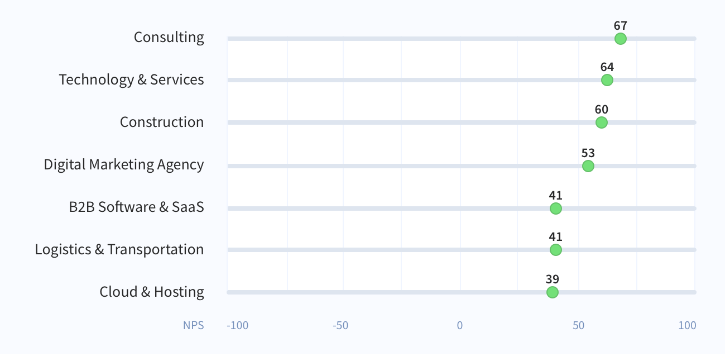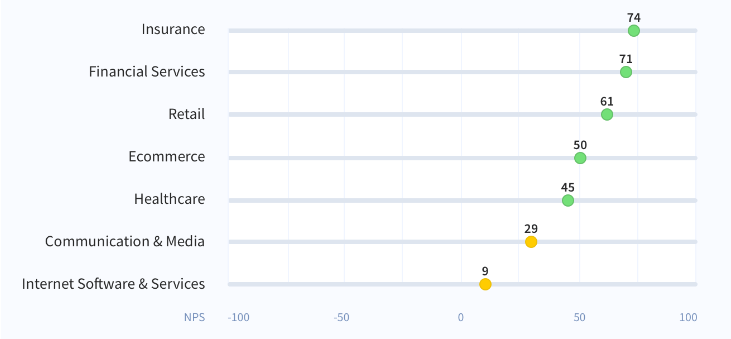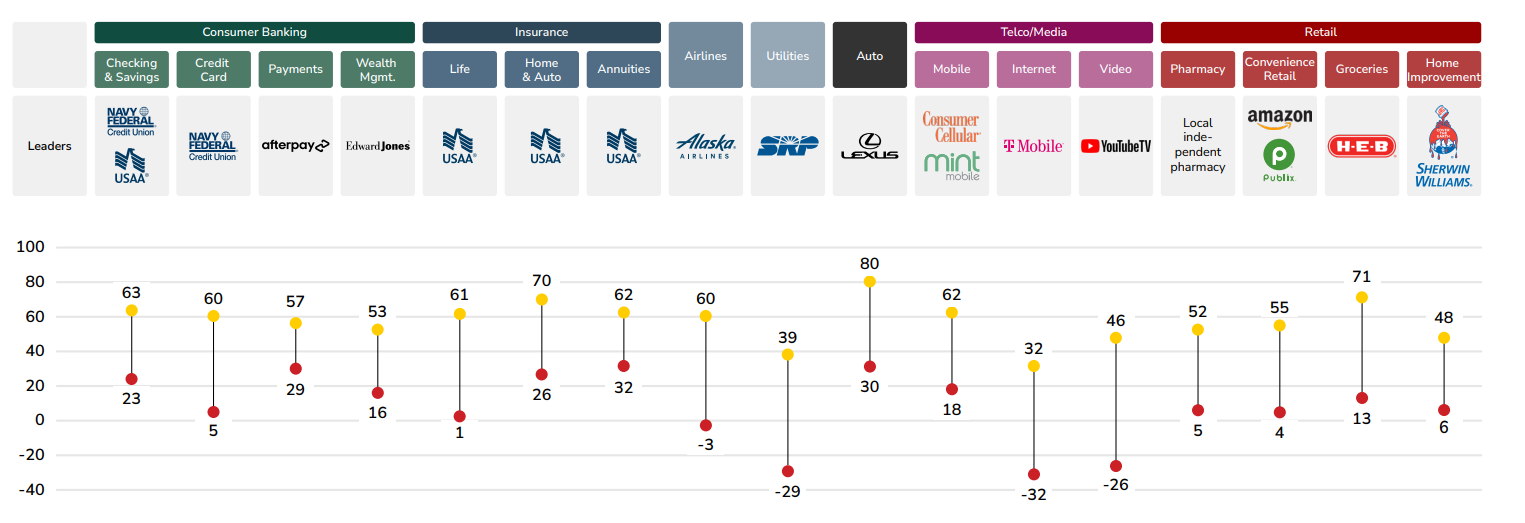In this page:
The Net Promoter Score is an index ranging from -100 to 100 that measures the willingness of customers to recommend a company, company’s products, or services to others. It is used as a proxy for gauging the customer’s overall satisfaction with a company’s product or service and the customer’s loyalty to the brand.
NPS serves as a predictive metric, where higher scores typically indicate stronger customer loyalty and satisfaction, which in turn can lead to enhanced business performance through increased customer retention, positive word-of-mouth, and revenue growth.

The Net Promoter Score (NPS) is determined by subtracting the percentage of customers who are detractors from the percentage who are promoters. What is generated is a score between -100 and 100 called the Net Promoter Score. At one end of the spectrum, if when surveyed, all of the customers gave a score lower or equal to 6, this would lead to an NPS of -100. On the other end of the spectrum, if all of the customers were answering the question with a 9 or 10, then the total Net Promoter Score would be 100.
Here's how it works:

‘Detractors’ gave a score lower or equal to 6. They are not particularly thrilled by the product or the service. They, with all likelihood, won’t use the services again from the company, could potentially damage the company’s reputation through negative word of mouth.
‘Passives’ gave a score of 7 or 8. They are somewhat satisfied but could easily switch to a competitor’s offering if given the opportunity. They probably wouldn’t spread any negative word-of-mouth but are not enthusiastic enough about your products or services to actually promote them.
‘Promoters’ answered 9 or 10. They love the company’s products and services. They are the repeat buyers, are the enthusiastic evangelist who recommends the company products and services to other potential buyers.
It’s clear to see how the balance of detractors and promoters would indicate a company’s potential for success. Starting from behind, it would cost a company much more money to win back a detractor as opposed to simply keeping promoters on board. They won’t buy more products and services from the company given their negative experience and they might very well bad mouth your brand to their peers.
The reverse is true with a customer enthusiast and promoter. They’ll buy more from the company they love; they’ll need less customer service and will refer valuable referrals and send more business your way. As Fred Reichheld, one of the key people behind NPS, said, “essentially promoters become the company’s marketing department.”
Bain and Co, who originally introduced this metric, have researched the correlation between a company’s growth and its Net Promoter Score. They found that for most industries, the Net Promoter Score accounts for 20% to 60% of a company’s organic growth rate.
“On average, the leader in an industry has a Net Promoter Score more than double that of its competitors.”
By specifically gathering information from survey participants as clients and candidates, the score helps you understand where you are falling short and where you are excelling. For instance, if your client NPS is low, your client facing executives can probe on what could improve – it could be poor quality of shortlist, wrong expectation setting, lack of speed, etc. If the candidate NPS is low, then you may want to reassess how you are approaching the market, your communication style, response rate, lack of appropriate candidate care, confidentiality protection, professionalism etc.
Every industry has an NPS benchmark. If your overall NPS score is higher than the industry benchmark, then a lot is going on right in your firm. Similarly, if your overall NPS score is lower than the industry benchmark, there is room for significant improvement.
Compared to detractors, promoters are over four times more likely to repurchase from a company, over five times more likely to forgive a company if it makes a mistake, over seven times more likely to try new offerings from a company, and almost five times more likely to trust a company.
The higher your NPS is, the more likely it is that your customer referrals will convert into new leads, hence into more revenue for your company.
Our many years of conducting NPS surveys for the executive search industry covering hundreds of firms has helped us form an industry benchmark for the search industry.
The overall benchmark for the executive search industry in the US is 41 for 2023. When it comes to clients, the benchmark NPS is 35 and with regards to candidates, the benchmark NPS is 30.

Some of the other industry benchmarks for 2023 according to Satmetix, are:
US B2B clients has the following NPS.

US B2C clients has the following NPS.

Here’s the Bain & Co. benchmark for 11 industries in the US for 2023:


Every year we reach out to the most relevant clients and candidates in the US to conduct a wide-reaching survey to capture NPS for executive search firms and the larger executive search industry. Contact us at [email protected] to get net promoter score for your executive search firm.
